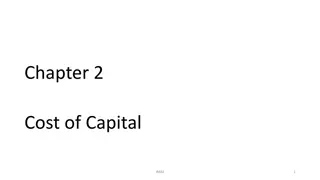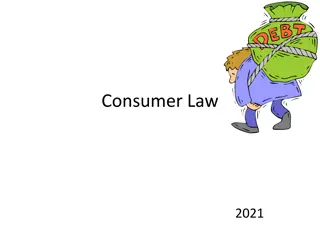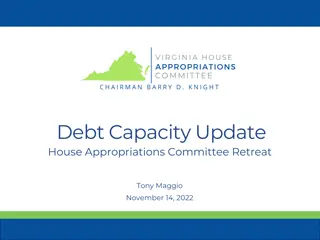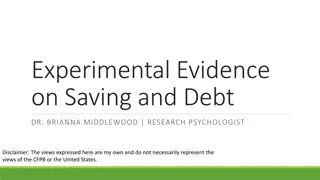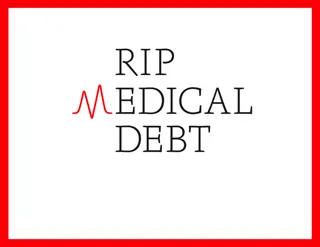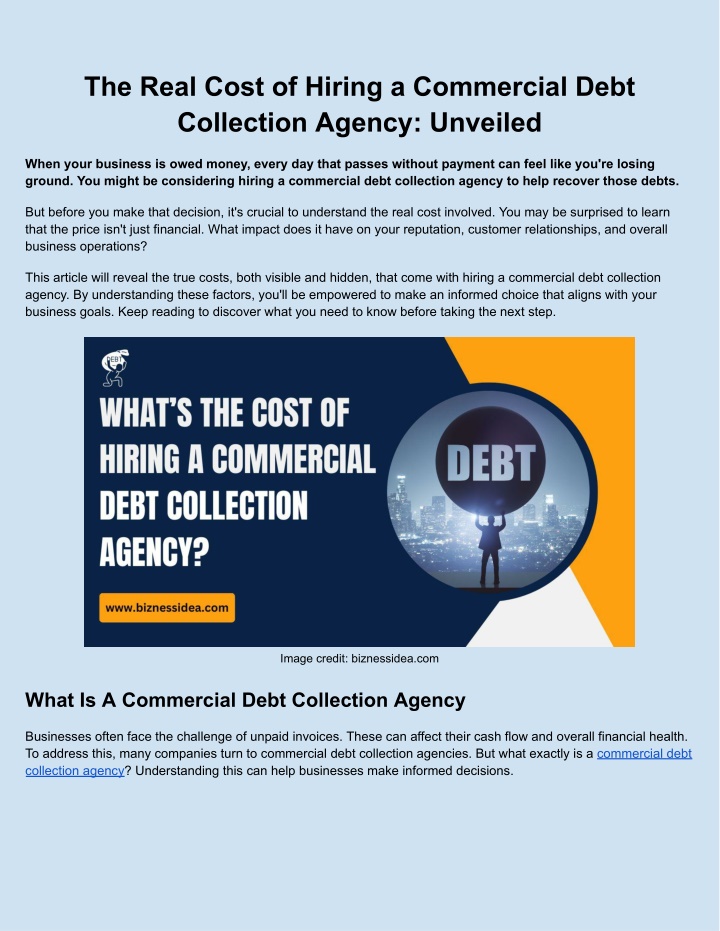
The Real Cost of Hiring a Commercial Debt Collection Agency
The Real Cost of Hiring a Commercial Debt Collection Agency
Download Presentation

Please find below an Image/Link to download the presentation.
The content on the website is provided AS IS for your information and personal use only. It may not be sold, licensed, or shared on other websites without obtaining consent from the author. If you encounter any issues during the download, it is possible that the publisher has removed the file from their server.
You are allowed to download the files provided on this website for personal or commercial use, subject to the condition that they are used lawfully. All files are the property of their respective owners.
The content on the website is provided AS IS for your information and personal use only. It may not be sold, licensed, or shared on other websites without obtaining consent from the author.
E N D
Presentation Transcript
The Real Cost of Hiring a Commercial Debt Collection Agency: Unveiled When your business is owed money, every day that passes without payment can feel like you're losing ground. You might be considering hiring a commercial debt collection agency to help recover those debts. But before you make that decision, it's crucial to understand the real cost involved. You may be surprised to learn that the price isn't just financial. What impact does it have on your reputation, customer relationships, and overall business operations? This article will reveal the true costs, both visible and hidden, that come with hiring a commercial debt collection agency. By understanding these factors, you'll be empowered to make an informed choice that aligns with your business goals. Keep reading to discover what you need to know before taking the next step. Image credit: biznessidea.com What Is A Commercial Debt Collection Agency Businesses often face the challenge of unpaid invoices. These can affect their cash flow and overall financial health. To address this, many companies turn to commercial debt collection agencies. But what exactly is a commercial debt collection agency? Understanding this can help businesses make informed decisions.
What Is A Commercial Debt Collection Agency? A commercial debt collection agency specializes in recovering unpaid debts for businesses. They work to retrieve money owed from other businesses, not individuals. These agencies use various methods to collect debts, ensuring businesses receive what they are due. They can help improve cash flow and reduce financial stress. How Do These Agencies Operate? Commercial debt collection agencies use specific strategies to recover debts. They may send letters, make phone calls, or negotiate payment plans. Some agencies may also take legal action if necessary. Their goal is to collect the debt quickly and efficiently. Benefits Of Using A Commercial Debt Collection Agency Expertise: Agencies have trained professionals skilled in debt recovery. Time-Saving: Businesses can focus on their core operations while the agency handles debt collection. Improved Cash Flow: Recovering debts can enhance a company s financial stability. Cost Considerations Choosing The Right Agency Selecting the right agency is crucial. Look for those with a proven track record. Check their reputation and client reviews. Ensure they use ethical collection practices.
Image credit: meltonnorcross.com What Is A Commercial Business Hiring a commercial debt collection agency involves certain costs. But before diving into the specifics, it's important to understand the type of business that might need such services. What is a commercial business? It's a business entity that operates with the goal of making a profit through the sale of goods or services. These businesses often deal with numerous clients and transactions, which can sometimes lead to unpaid invoices. Understanding the nature of commercial businesses can help in assessing the real cost of hiring a debt collection agency. Understanding the nature of these businesses helps in managing debt collection effectively. Each type has different financial interactions, leading to varied debt recovery needs. Why Do Commercial Businesses Need Debt Collection Agencies? Debt collection agencies help recover unpaid debts. This is crucial for maintaining cash flow. Without proper cash flow, a business can struggle to meet its own obligations. Improves financial stability Reduces time spent on debt recovery Professional handling of sensitive situations For commercial businesses, hiring an agency can be a cost-effective solution. It ensures that professionals handle overdue payments, allowing businesses to focus on core operations. Factors Influencing Cost Hiring a commercial debt collection agency can be a wise decision for businesses struggling with unpaid invoices. But understanding the real costs involved is crucial. Various factors influence these costs, making it essential for businesses to evaluate their options carefully. Knowing these factors can help you make an informed decision and possibly save money. 1. Size of Debt The size of the debt plays a significant role in determining the cost of collection services. Larger debts may require more effort and resources, leading to higher fees. Agencies often charge a percentage of the collected amount, so larger debts might incur more costs. 2. Age of the Debt Older debts are typically harder to collect. As time passes, the chances of successful recovery decrease. This risk factor often results in higher costs for older debts. Agencies might apply higher fees for debts that are months or years overdue. 3. Type of Debt Consumer Debt - Often easier to collect, resulting in lower costs. Business Debt - May involve complex negotiations and higher fees. The nature of the debt influences the approach and resources needed for collection, impacting the cost.
4. Agency's Fee Structure Collection agencies use different fee structures, such as: Contingency Fee: A percentage of the collected amount. No collection, no fee. Flat Fee: A fixed amount regardless of the debt size. Understanding the fee structure is crucial for budgeting and cost estimation. 5. Location Geographical location can affect the cost. Different regions have varying regulatory requirements and operational costs. Agencies in urban areas might charge more due to higher expenses. 6. Success Rate Agencies with high success rates might charge more. But paying a bit extra can be worth the successful recovery. Assess the agency's track record before making a decision. Types Of Fee Structures Understanding the cost of hiring a commercial debt collection agency is crucial for businesses. This cost often varies based on the agency's fee structure. Businesses must choose a structure that aligns with their financial goals and recovery needs. Below are the primary types of fee structures to consider. Each has its own set of advantages and potential drawbacks. Contingency Fees Contingency fees are a popular choice for many businesses. With this structure, agencies charge a percentage of the amount collected. This can be beneficial because it reduces upfront costs. You only pay if the agency successfully collects the debt. No collection, no fee: You only pay if the debt is recovered. Motivated agents: Agencies work hard because their payment depends on success. Varied rates: Typically, rates range from 15% to 50% of collected amounts. Consider this structure if you want to minimize financial risk. But be aware, the percentage can be high for difficult cases. Flat Fees Flat fees are straightforward and predictable. In this structure, you pay a fixed amount regardless of the debt amount. This is often used for simpler or smaller debts. Predictable costs: Know your expenses upfront. Simplicity: Easy to budget for and manage. May not incentivize: Agents get paid regardless of results.
This structure is ideal if you have a clear idea of recovery potential. It works well for debts that are easier to collect. Note that this may not be suitable for large or complex debts. Hourly Rates Some agencies charge by the hour. This structure means you pay for the time spent on your case. It's common in legal or complex collection scenarios. Pay for time: Fees depend on hours worked. Detailed work: Useful for intricate or legal-heavy cases. Cost can vary: Risk of higher costs if cases take longer. Hourly rates provide flexibility but can lead to unpredictable expenses. They suit cases requiring intensive investigation or negotiation. Consider this option if you expect extensive work on a case. Comparing Commercial Debt Collection Agencies Hiring a commercial debt collection agency can be a significant decision for businesses. Choosing the right agency impacts both your finances and reputation. Not all agencies offer the same level of service, so it's crucial to compare them carefully. Evaluating factors like reputation, experience, success rates, and client reviews can help in making an informed decision. This guide explores these essential aspects to help you choose the best commercial debt collection agency. Reputation And Experience Reputation and experience are critical when assessing commercial debt collection agencies. An agency with a solid reputation is often more reliable and trustworthy. They have a history of professionalism and ethical practices. Years in Business: Agencies with more years in the industry have proven their capability to adapt and thrive. Industry Specialization: Some agencies specialize in specific sectors, offering tailored services that can be more effective. Track Record: A proven track record with successful debt recovery boosts credibility. Choosing an agency with the right experience ensures they understand your industry's challenges. This knowledge can lead to more effective debt recovery strategies. Success Rates Success rates are a vital metric in evaluating debt collection agencies. A higher success rate indicates the agency's efficiency in recovering debts. Agencies often share their success rates to build trust with potential clients. Consider these points when evaluating success rates: 1. Consistency: Consistent success rates over time show reliability. 2. Recovery Time: Faster recovery times can save your business money and improve cash flow. 3. Percentage Recovered: Check what percentage of debts they typically recover. Evaluating these aspects can lead to selecting an agency that maximizes your debt recovery potential.
Client Reviews Client reviews provide real-world insights into the agency's performance and customer service. Positive reviews suggest satisfied clients, while negative reviews can highlight potential issues. Key points to consider: Volume of Reviews: More reviews often mean a more reliable overview. Common Themes: Look for recurring praise or complaints to identify consistent strengths or weaknesses. Response to Feedback: Agencies that respond to feedback show a commitment to customer satisfaction. Analyzing client reviews helps you understand how the agency interacts with its clients and handles challenges. Choosing The Right Debt Collection Agency Hiring a commercial debt collection agency is a significant decision for any business. The costs involved go beyond mere financial expenses. Choosing the right agency can impact your company's reputation and financial health. It's essential to understand what you're getting into and how to select an agency that meets your needs. This section will guide you through assessing needs, evaluating contracts, and negotiating terms to ensure you make an informed choice. Assessing Needs Understanding your business needs is the first step in selecting a debt collection agency. Not all agencies provide the same services, and some may specialize in specific industries or types of debt. Here's how to assess your needs: Credit Risk Assessment: Determine the level of risk associated with your overdue accounts. This will help you decide on the aggressiveness needed in a debt recovery strategy. Debt Recovery Services: Evaluate the services offered by the agency. Do they offer comprehensive solutions, or are their services limited? Business Financial Management: Consider the impact of debt recovery on your overall financial management. How will the agency's services integrate with your existing systems? By identifying these key factors, you can ensure that the agency you choose aligns with your business objectives and financial goals. Negotiating Terms Negotiation strategies are essential in securing favorable terms with a debt collection agency. A well-negotiated contract can significantly reduce costs and enhance service quality. Focus on: 1. Debt Collection Process: Ensure the agency's methods align with your company values and customer relations. 2. Negotiation Strategies: Discuss payment terms, including upfront costs versus performance-based fees. 3. Commercial Debt Collection: Clarify the agency's approach to commercial debts. Are they experienced in handling complex business accounts?
Through effective negotiation, you can tailor the agreement to fit your specific needs and protect your business interests. Long-term Financial Impact Hiring a commercial debt collection agency might seem like a quick fix for unpaid invoices. But understanding the long-term financial impact is crucial. The decision affects more than just immediate cash flow. Impact On Cash Flow The primary reason businesses turn to debt collection agencies is to improve cash flow. While agencies can help recover outstanding debts, they come with fees. These fees can range from a flat rate to a percentage of the collected debt. Flat fee: A set amount charged regardless of the debt amount. Percentage fee: Typically ranges from 20% to 50% of the collected amount. Consider a debt of $10,000 with a 30% collection fee. If the agency recovers the full amount. You receive $7,000, losing $3,000 to fees. This affects your net revenue and must be accounted for in financial planning. While agencies can improve cash flow, they don't provide full debt recovery. This affects budgets and financial forecasts. Customer Relationships Debt collection can strain customer relationships. Agencies often use aggressive tactics to recover debts. This approach can alienate clients, leading to lost business. Maintaining a good rapport with customers is crucial. Here's why: Repeat Business: Happy customers return for more purchases. Referrals: Satisfied clients recommend your business to others. Feedback: Engaged customers provide valuable insights for improvement. Alienating clients through harsh collection methods can damage these benefits. A polite reminder from your company might yield better results. Consider balancing debt recovery with customer satisfaction. Reputation Risks The way a business handles debt recovery can impact its reputation. Aggressive tactics by collection agencies might lead to negative reviews. These reviews can deter potential clients. In today's digital age, word spreads fast. Clients share experiences online, influencing public perception. A single bad review can reach thousands, affecting your brand image. Consider these reputation risks: 1. Negative Reviews: Affect trust and deter new clients. 2. Brand Image: Aggressive tactics paint a negative picture. 3. Public Backlash: Social media amplifies dissatisfied voices.
Balancing debt recovery with maintaining a good reputation is vital. Opt for agencies that align with your brand values and maintain professionalism. Frequently Asked Questions What Is The 777 Rule With Debt Collectors? The 777 rule states that debt collectors can only contact you once per day, seven times a week. This rule helps prevent harassment and excessive communication from debt collectors. It ensures that consumers have a fair chance to manage their debt without feeling overwhelmed. Is Hiring A Collection Agency Worth It? Hiring a collection agency can be worth it for recovering unpaid debts. They increase recovery rates and save time. Agencies handle negotiations professionally, allowing businesses to focus on core operations. Evaluate costs and success rates to determine their value for your specific needs. What Is The Average Collection Agency Fee? The average collection agency fee ranges from 20% to 50% of the collected debt. Fees vary based on factors like debt age and complexity. Agencies typically charge higher rates for older debts. It's crucial to compare different agencies to find competitive rates tailored to your needs. What Percent Does A Collection Agency Take? Collection agencies typically charge between 20% to 50% of the recovered amount. The exact rate depends on factors like the debt's age, amount, and complexity. Agencies may negotiate fees based on specific circumstances. Always review and understand the agency's terms before proceeding. Conclusion Hiring a commercial debt collection agency involves various costs. Financial expenses are clear. But consider time saved and stress reduced. Agencies handle tough negotiations efficiently. They increase the chances of debt recovery. Your business focuses on growth, not chasing unpaid bills. Choose wisely, research thoroughly, and understand contracts. Value extends beyond monetary fees. Peace of mind is priceless. Make informed decisions. Weigh all pros and cons. Prioritize long-term benefits over short-term costs. Effective debt recovery aids business stability. Stay proactive in financial management. A good agency supports your success.










